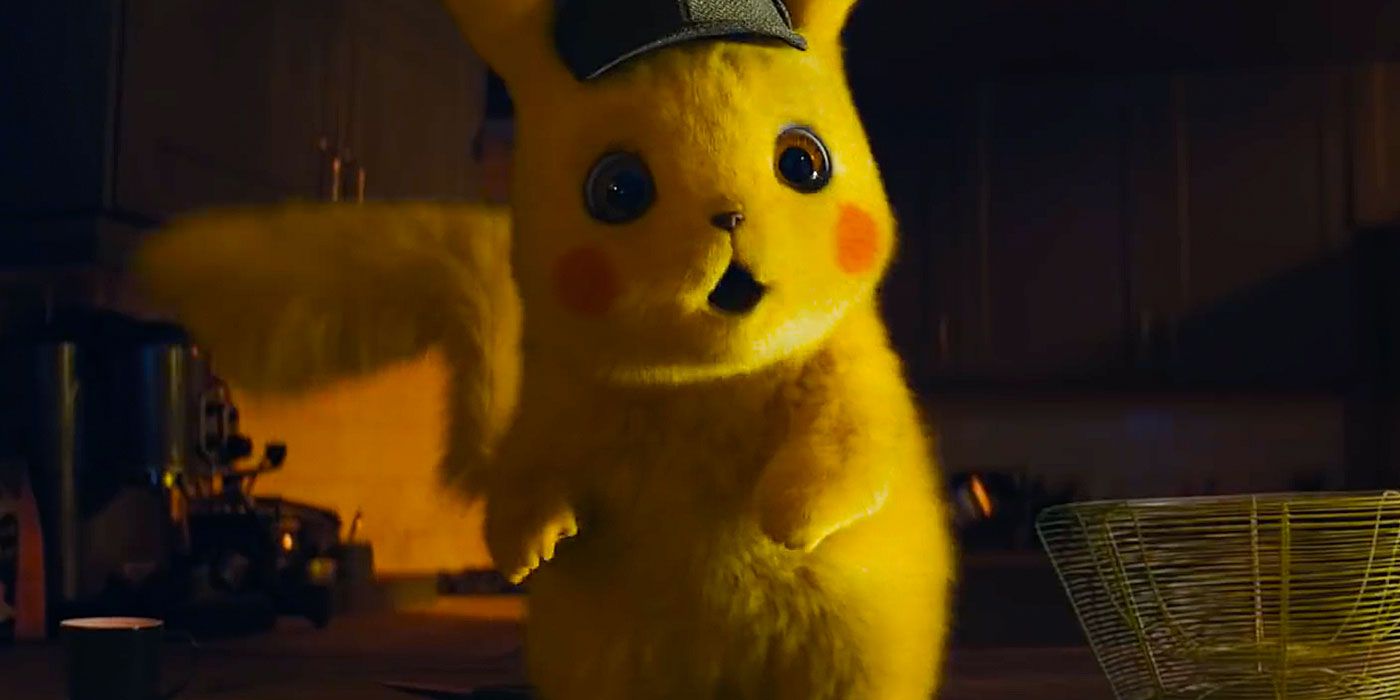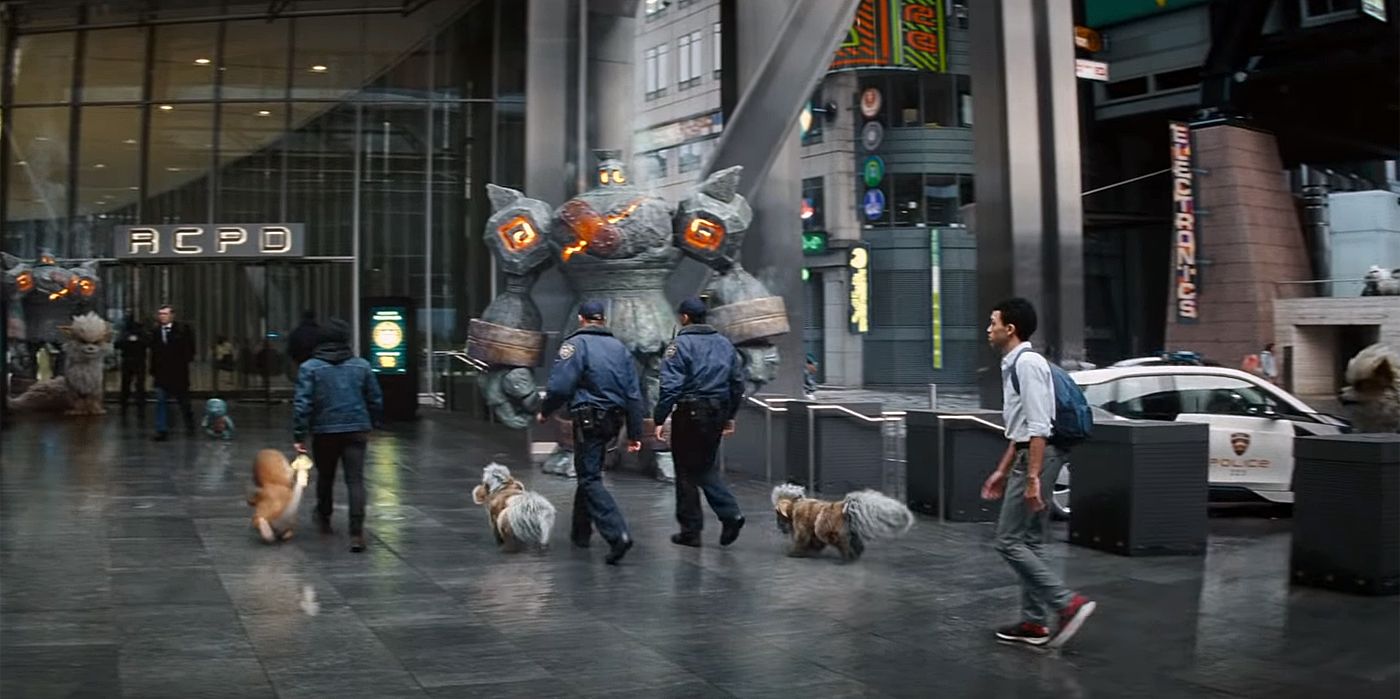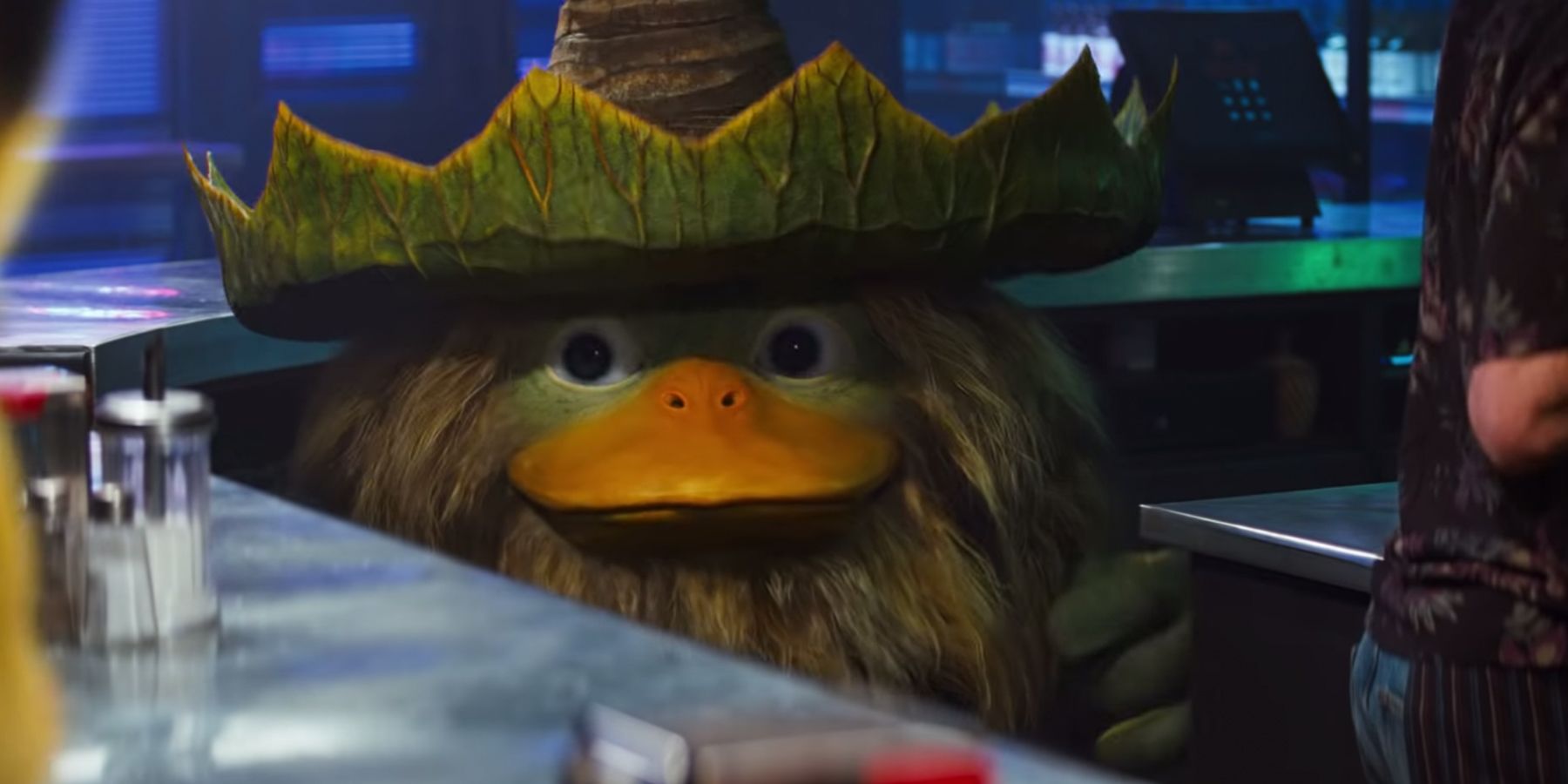Rob Letterman is ready to shake up the Pokémon game with his newest film, Detective Pikachu.
The director, whose works include Monsters vs. Aliens, the live-action Goosebumps movie and Shark Tale, is the metaphoric trainer behind a brand new Pokémon adventure. Detective Pikachu, which Letterman co-wrote with Dan Hernandez, Benji Samit and Derek Connolly, takes the global franchise in a new direction, stepping away from the trademark battles to focus instead on a story defined by drama, intrigue and mysteries. It also sets itself apart visually, as the first Pokémon movie to mix live-action and computer generated animation as humans and creatures alike interact in the bustling Ryme City.
Ahead of the film's release, CBR spoke with Letterman about the process of creating such an ambitious project, the performance of Reynolds as the titular Detective Pikachu, and what working on the film taught him about the Pokémon fandom at large.
CBR: What was your initial reaction to being asked to direct Detective Pikachu?
Rob Letterman: The initial reaction was from my kids. They're huge Pokémon fans, so they were cheering before I even had a chance to respond. It was a big deal in our household to work on a Pokémon movie since we've been living with it for so many years. Between the cards, games and even manga, it's been a big part of our household.
What was the process like, blending live action and 3D animated elements in Detective Pikachu?
It was daunting and complicated. First, we had to get the Pokémon right. The movie's for the hardcore fans, so we wanted them to be authentic and nail the look. We worked very closely with not only the Pokémon Company but also the original designers and the regional artists who drew them. We spent a year crafting all the Pokémon characters who are in the movie, going back and forth with the team in Tokyo to make sure we did it right.
Integrating them into the real world was a combination of several things. The whole goal was for the Pokémon to stay true to who they are in terms of their original cartoon silhouettes, but to make them photorealistic. You should feel that they're living, breathing creatures in the real world. We shot on location, and kept the camera work and lighting gritty and realistic. Combine that with the latest, greatest visual effects, and we were able to blend them into the world. Hopefully, the people watching it feel that Pikachu's actually on set and we're just watching it.
Another element that separates the film from others in the Pokémon series is making the story a film noir. How did you work through that style choice?
That was one of the things I was attracted to about the project. It lent itself to a cinematic take. The Detective Pikachu game was in development [at the time], so we were working with them in parallel. We were always planning to work in film noir, but I mixed in a lot of other genres, like '70s cop drama and sci-fi in the vein of Blade Runner. There's a lot of cinematic references throughout the movie, so it celebrates cinema as well as Pokémon. It's a fresh way into the Pokémon universe and allows us to have our own standout new region in Ryme City. While it's a brand new city, we have a lot of connective tissue into the overall Pokémon universe that came before it. There are a lot of Easter eggs that tie it all in.
How much did Ryan Reynolds' performance as the titular Detective Pikachu affect his characterization, and vice versa?
Pikachu is Ryan. We used facial capture, so if you look into Pikachu's eyes, those are Ryan Reynolds' eyes. That is his performance; he brings Pikachu to life. They're not the same build, so the movements were derived from the animal kingdom and hundreds of animators around the world. But it really is driven by Ryan's performance. That's how it all starts, and it built out from there.
What do you think it is about the Pokémon franchise that has kept it going strong for over twenty years?
I didn't even fully appreciate until working on the film how big it was for people in their twenties and early thirties. They have a real love affair with Pokémon. There's a real nostalgia for it, and it had a really big impact on a lot of people. I love how it appeals to a wide age group around the world.
One of the main themes of the movie is companionship, whether it be between humans, Pokémon or both. What made you decide to emphasize that?
It's really important to have a unifying theme for any movie, regardless of what genre it is. Having that theme of connection was nice. There's a wish fulfillment to that. Companionship is very relatable; it's a great way to tie the real world to this fantasy world. I gravitated towards it quite a bit. I love that in Ryme City, there are no Pokémon in Pokéballs. This is a new kind of relationship. Evolution is a big theme in Pokémon canon, and this is an evolution of that idea, having to co-exist. The world-building is so tantalizing.
On that note, what would be your companion Pokémon?
Oh, that's easy for me. It's a Psyduck. I get stressed, confused and neurotic. It gives me a headache as well, and my head explodes daily. It has to be Psyduck.
Directed by Rob Letterman from a script written by Dan Hernandez and Benji Samit, Detective Pikachu stars Justice Smith, Kathryn Newton, Ken Watanabe and the voice of Ryan Reynolds. The film opens in theaters on May 10.



